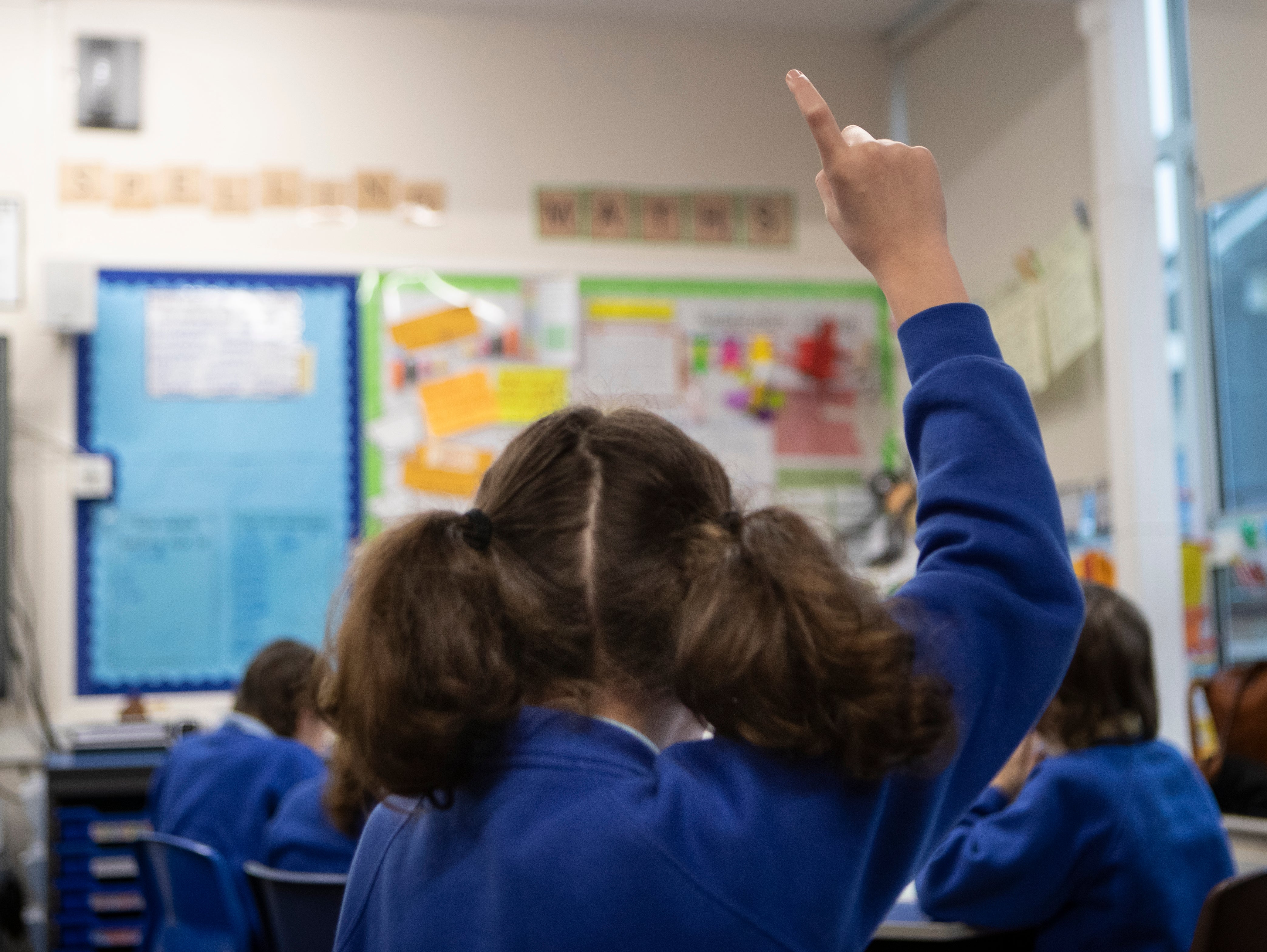Focus on phonics to teach children how to read ‘is uninformed’, study says
UCL researchers join more than 250 signatories of open letter calling on government to change policy

Your support helps us to tell the story
From reproductive rights to climate change to Big Tech, The Independent is on the ground when the story is developing. Whether it's investigating the financials of Elon Musk's pro-Trump PAC or producing our latest documentary, 'The A Word', which shines a light on the American women fighting for reproductive rights, we know how important it is to parse out the facts from the messaging.
At such a critical moment in US history, we need reporters on the ground. Your donation allows us to keep sending journalists to speak to both sides of the story.
The Independent is trusted by Americans across the entire political spectrum. And unlike many other quality news outlets, we choose not to lock Americans out of our reporting and analysis with paywalls. We believe quality journalism should be available to everyone, paid for by those who can afford it.
Your support makes all the difference.The manner in which children are taught to read in England is in need of urgent reform, more than 250 experts have said in a letter to the government.
According to research, led by academics from UCL, England’s teachers now focus more on teaching children how to read by blending sounds together – known as synthetic phonics – than on reading and enjoying whole texts.
The UCL researchers have joined more than 250 signatories of an open letter calling on the government to change its policy on reading.
In the letter they demand that reforms “centre on a wider range of approaches to teaching phonics and reading, enabling teachers to use their own judgement about which is best for their pupils”.
For the first time in more than 100 years we see that a balanced instruction approach to the teaching of reading is no longer the norm in England
It adds that children should learn phonics as part of reading whole texts, and that teachers should be enabled to use their own judgment to decide what is best for pupils.
Co-author Professor Dominic Wyse, head of the Department of Learning and Leadership at UCL’s Institute of Education, said teaching children to read is “crucial” to improving their life chances.
“Teaching children to read and to make sense of texts is crucial to improving their life chances and is one of the most important tasks of primary schools and early years settings,” he said.
“Although there are some strengths to England’s current approach to teaching reading, our new research shows that the government’s policy is uninformed because it is not underpinned by the latest robust evidence.
“For the first time in more than 100 years we see that a balanced instruction approach to the teaching of reading is no longer the norm in England.”
Prof Wyse said teachers are now more frequently using the “narrower” synthetic phonics approach.
“Our view is that the system doesn’t give teachers enough flexibility to do what they think is best for their pupils, nor to encourage pupils to enjoy reading,” he added.
The research found that 66 per cent of 634 teachers who answered a question on the subject replied that synthetic phonics was their main focus compared with 1 per cent (nine) who said they focused on whole texts.
In line with the evidence, our guidance on reading makes clear that phonics is just one part of becoming a fluent reader
The phonics screening check, given to Year 2 pupils, proved very unpopular with teachers surveyed by the study.
Some 935 out of 936 written comments from the teacher survey were negative about the test.
Commenting on UCL’s paper about the government’s approach to the teaching of reading, Julie McCulloch, director of policy at the Association of School and College Leaders said it was important that phonics was combined with helping children to develop a love of reading.
“There is clear evidence that synthetic phonics provides a strong foundation to help children to learn to read,” she said.
“But it is important that this is combined with approaches which help children to appreciate stories and develop a love of reading.
In a statement, the Department for Education defended the use of phonics in teaching children how to read.
A department spokesperson said: “We are committed to raising literacy standards by following the evidence. Systematic phonics teaching has been proven the world over to be the most effective method of teaching children to read.
“Since the introduction of the phonics screening check in 2012, the percentage of Year 1 pupils meeting the expected standard in reading has risen from 58% to 82%, with 92% of children achieving this standard by Year 2.
“In line with the evidence, our guidance on reading makes clear that phonics is just one part of becoming a fluent reader. As well as systematic phonics teaching, teachers should also focus on speaking and reading stories to foster a love of reading among children.”